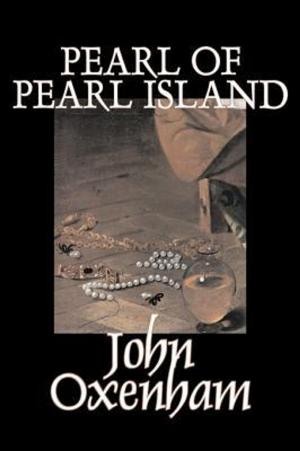| Author: | JOSEPH SHERIDAN LE FANU | ISBN: | 1230002425917 |
| Publisher: | Jwarlal | Publication: | July 13, 2018 |
| Imprint: | Language: | English |
| Author: | JOSEPH SHERIDAN LE FANU |
| ISBN: | 1230002425917 |
| Publisher: | Jwarlal |
| Publication: | July 13, 2018 |
| Imprint: | |
| Language: | English |
There are other smaller streets and by-lanes, some dark with a monastic stillness, others thinly built, with little gardens and old plum and pear trees peeping over grass-grown walls, and here and there you light upon a fragment of that ancient town wall from which, in the great troubles which have helped to build up the glory of England, plumed cavaliers once parleyed with steel-capped Puritans. Thus the tints and shadows of a great history rest faintly even upon this out-of-the-way and serene little town.
The permanent residents of Cardyllian for half the year are idle, and for mere occupation are led to inquire into and report one another's sins, vanities, and mishaps. Necessity thus educates them in that mutual interest in one another's affairs, and that taste for narrative, which pusillanimous people call prying and tattle. That the people now residing in Malory, scarcely a mile away, should have so totally defeated them was painful and even irritating.
It was next to impossible to take a walk near Cardyllian without seeing Malory; and thus their failure perpetually stared them in the face.
You can best see Malory from the high grounds which, westward of the town, overlook the estuary. About a mile away you descry a dark and rather wide-spread mass of wood, lying in a gentle hollow, which, I think, deepens its sombre tint. It approaches closely to the long ripple of the sea, and through the foliage are visible some old chimneys and glimpses of gray gables. The refectory of the friary that once stood there, built of gray and reddish stones, half hid in ivy, now does duty as a barn. It is so embowered in trees, that you can scarcely, here and there, gain a peep from without at its tinted walls; and the whole place is overhung by a sadness and silence that well accord with its cloistered traditions. That is Malory.
It was Sunday now. Over the graves and tombstones of those who will hear its sweet music no more, the bell had summoned the townsfolk and visitors to the old church of Cardyllian.
The little town boasts, indeed, a beautiful old church, Gothic, with side-aisles, and an antique stained window, from which gloried saints and martyrs look down, in robes as rich and brilliant as we see now-a-days only upon the kings and queens of our court cards. It has also some fine old monuments of the Verney family. The light is solemn and subdued. There is a very sweet-toned organ, which they say is as old as the reign of Charles I., but I do not know how truly. In the porch are hung in chains two sacrilegious round-shot, which entered the church when Cromwell's general opened his fire, in those days of sorrow when the liberties of England were in the throes of birth. Beside the brilliant stained window, engraven upon a brass plate, is a record of the same "solemn times," relating how certain careful men, to whom we are obliged, had taken down, enclosed in boxes, and buried, in hope of a typical resurrection, the ancient window which had for so long beautified "this church," and thus saved it from the hands of "violent and fanatical men."
When "the season" is still flourishing at Cardyllian, the church is sometimes very full. On the Sunday I speak of it was so. One pew, indeed, was quite relieved from the general pressure. It was the large panelled enclosure which stands near the communion rails, at the right as you look up the aisle toward the glowing window. Its flooring is raised a full foot higher than the surrounding level. This is the seat of the Verney family.
There are other smaller streets and by-lanes, some dark with a monastic stillness, others thinly built, with little gardens and old plum and pear trees peeping over grass-grown walls, and here and there you light upon a fragment of that ancient town wall from which, in the great troubles which have helped to build up the glory of England, plumed cavaliers once parleyed with steel-capped Puritans. Thus the tints and shadows of a great history rest faintly even upon this out-of-the-way and serene little town.
The permanent residents of Cardyllian for half the year are idle, and for mere occupation are led to inquire into and report one another's sins, vanities, and mishaps. Necessity thus educates them in that mutual interest in one another's affairs, and that taste for narrative, which pusillanimous people call prying and tattle. That the people now residing in Malory, scarcely a mile away, should have so totally defeated them was painful and even irritating.
It was next to impossible to take a walk near Cardyllian without seeing Malory; and thus their failure perpetually stared them in the face.
You can best see Malory from the high grounds which, westward of the town, overlook the estuary. About a mile away you descry a dark and rather wide-spread mass of wood, lying in a gentle hollow, which, I think, deepens its sombre tint. It approaches closely to the long ripple of the sea, and through the foliage are visible some old chimneys and glimpses of gray gables. The refectory of the friary that once stood there, built of gray and reddish stones, half hid in ivy, now does duty as a barn. It is so embowered in trees, that you can scarcely, here and there, gain a peep from without at its tinted walls; and the whole place is overhung by a sadness and silence that well accord with its cloistered traditions. That is Malory.
It was Sunday now. Over the graves and tombstones of those who will hear its sweet music no more, the bell had summoned the townsfolk and visitors to the old church of Cardyllian.
The little town boasts, indeed, a beautiful old church, Gothic, with side-aisles, and an antique stained window, from which gloried saints and martyrs look down, in robes as rich and brilliant as we see now-a-days only upon the kings and queens of our court cards. It has also some fine old monuments of the Verney family. The light is solemn and subdued. There is a very sweet-toned organ, which they say is as old as the reign of Charles I., but I do not know how truly. In the porch are hung in chains two sacrilegious round-shot, which entered the church when Cromwell's general opened his fire, in those days of sorrow when the liberties of England were in the throes of birth. Beside the brilliant stained window, engraven upon a brass plate, is a record of the same "solemn times," relating how certain careful men, to whom we are obliged, had taken down, enclosed in boxes, and buried, in hope of a typical resurrection, the ancient window which had for so long beautified "this church," and thus saved it from the hands of "violent and fanatical men."
When "the season" is still flourishing at Cardyllian, the church is sometimes very full. On the Sunday I speak of it was so. One pew, indeed, was quite relieved from the general pressure. It was the large panelled enclosure which stands near the communion rails, at the right as you look up the aisle toward the glowing window. Its flooring is raised a full foot higher than the surrounding level. This is the seat of the Verney family.















